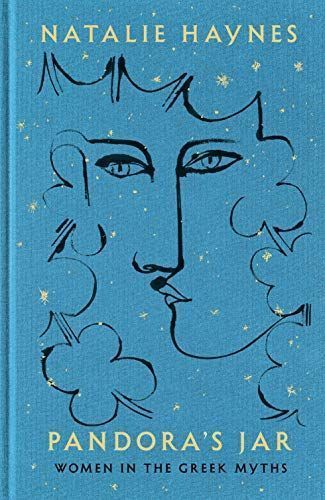
Pandora's Jar Women in the Greek Myths
'Natalie Haynes is the nation's muse' Adam Rutherford The Greek myths are one of the most important cultural foundation-stones of the modern world. Stories of gods and monsters are the mainstay of epic poetry and Greek tragedy, from Homer to Virgil to from Aeschylus to Sophocles and Euripides. And still, today, a wealth of novels, plays and films draw their inspiration from stories first told almost three thousand years ago. But modern tellers of Greek myth have usually been men, and have routinely shown little interest in telling women's stories. Now, in Pandora's Jar, Natalie Haynes - broadcaster, writer and passionate classicist - redresses this imbalance. Taking Greek creation myths as her starting point and then retelling the four great mythic sagas: the Trojan War, the Royal House of Thebes, Jason and the Argonauts, Heracles, she puts the female characters on equal footing with their menfolk. The result is a vivid and powerful account of the deeds - and misdeeds - of Hera, Aphrodite, Athene and Circe. And away from the goddesses of Mount Olympus it is Helen, Clytemnestra, Jocasta, Antigone and Medea who sing from these pages, not Paris, Agamemnon, Orestes or Jason.
Reviews
Teresa Bonifácio@teresabonifacio
Katie Guo@ukime
Francesca@franci_pandini
sharkie@scyllalycoris
Valentina@valtheblonde
p.@softrosemint
Lauren@boandr
Caitlyn Baldwin@caitlynkbaldwin
Chloe Subitte@chloesubitte
Abigail Auvray@darlington
Vitor Augusto Dal Molin @vitoraugusto
Bethan Northwood@whatarementorocksandmountains
Erin.@colourhergone
Valentina@valtheblonde
Nynke Elise@nynke_elise
Claudia@cloudtrot
Lauren Robinson@lozrobinson5
Paige Wanner@turntopaige22
Cindy McKee@cindy-lou23
Julia Rutgers@juul
Alexis Manore @alexismanore
Emily Carruthers @emilyjcarruthers
Zoe Wilson@zoespages
Giulia@giuliabenedetto
Highlights
Lea Hi@Leoni198
Page 50
Lea Hi@Leoni198
Page 3
Julia Rutgers@juul
Page 100
Julia Rutgers@juul
Page 98
Julia Rutgers@juul
Page 51
Riley@tryingtoread
Page 50
Riley@tryingtoread
Page 25
Riley@tryingtoread
Page 3
Lauren@boandr
Page 288
Lauren@boandr
Page 288
Lauren@boandr
Page 260
Lauren@boandr
Page 240
Lauren@boandr
Page 115
Lauren@boandr
Page 100
Lauren@boandr
Page 3